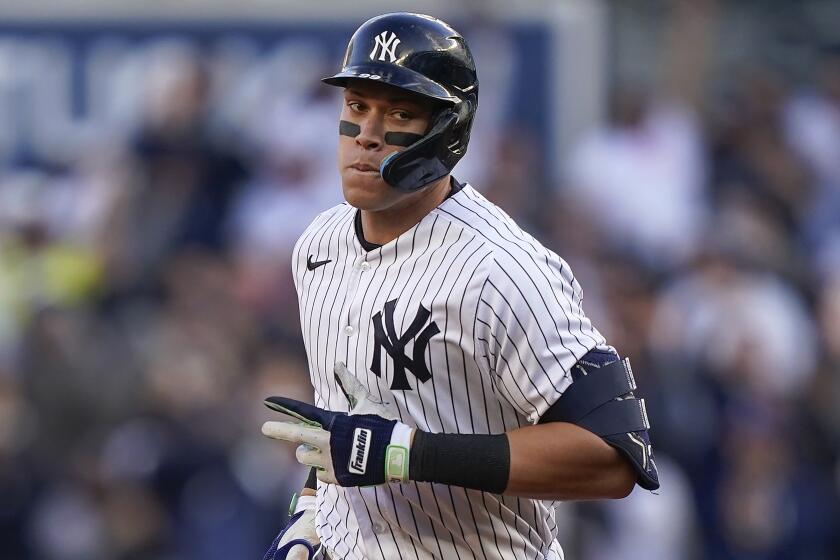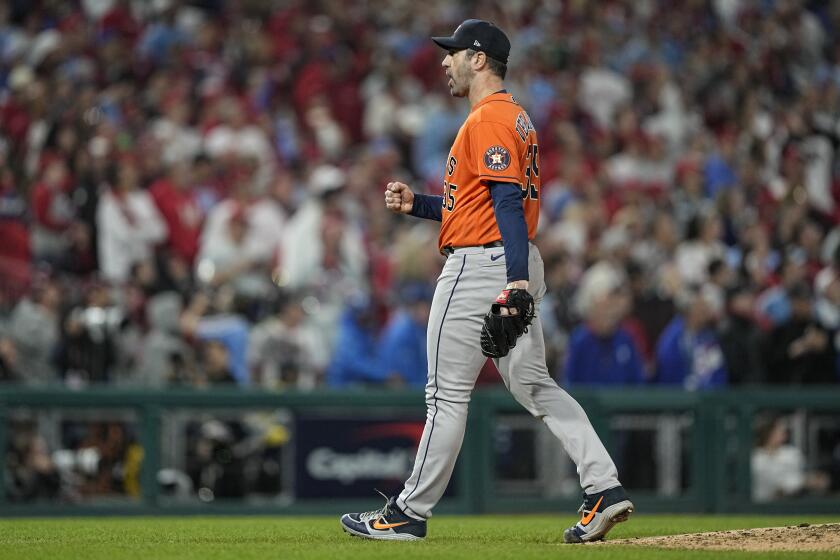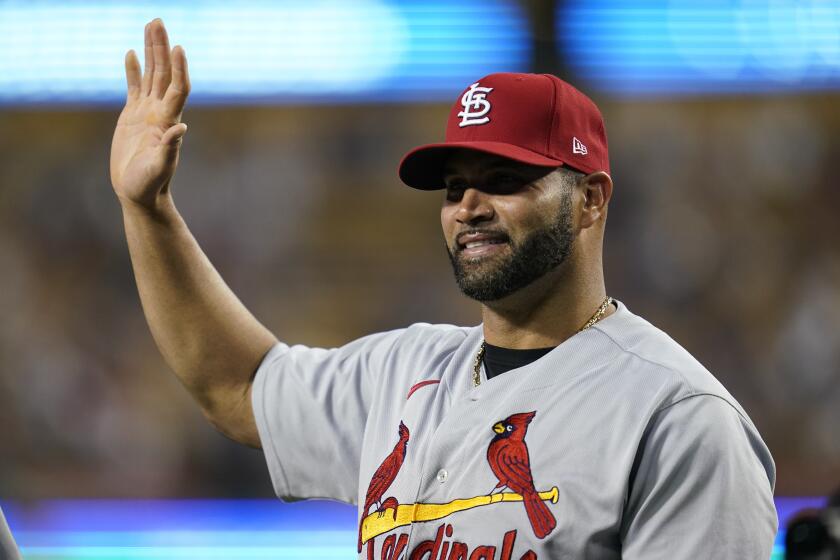Column: Baseball embracing ‘flukes’ and plenty of added revenue this postseason
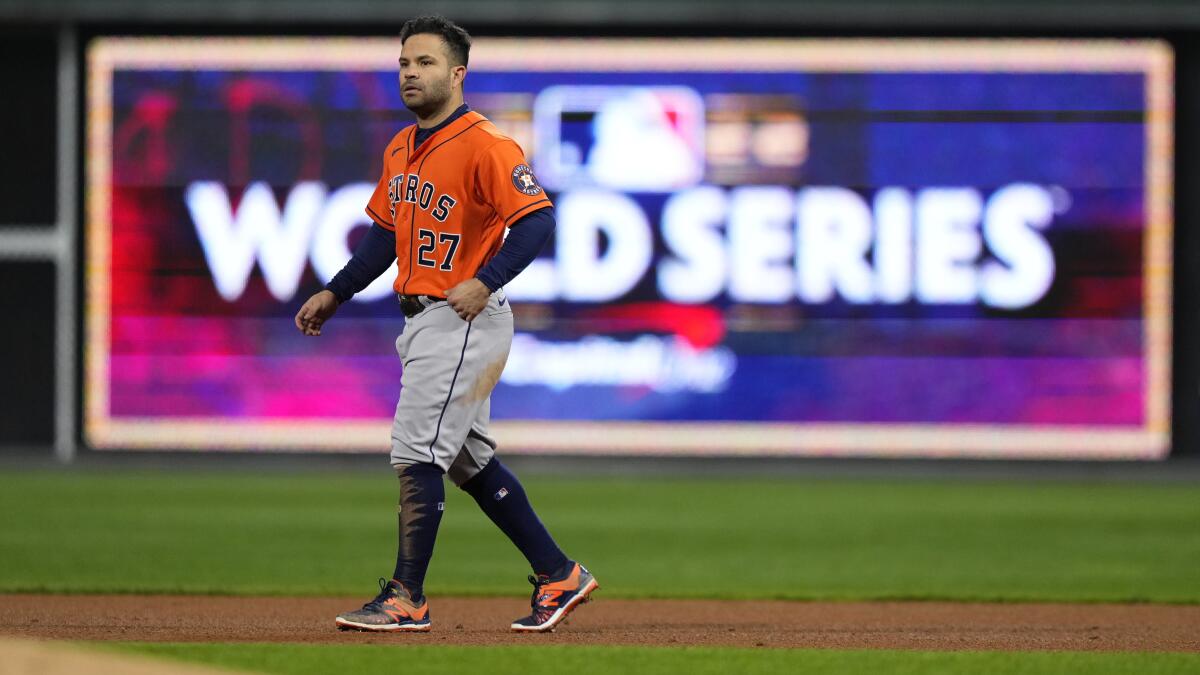
- Share via
HOUSTON — This baseball season started late and ended later. We did not expect the Lakers to be done before the World Series was done, but here we are.
This fall marked the debut of baseball’s grand new postseason. A sport that for generations prided itself on a regular season long enough to eliminate any flukes had taken a dramatic step in embracing the fluke. With the playoff field expanded to 12 teams, the message could not have been any clearer: The regular season determines the best team, and the postseason determines the champion.
This was not the largest postseason field in baseball history. In the pandemic-shortened 2020 season, Major League Baseball invited 16 teams to the playoffs. There was no angst because, in the end, the World Series featured the team with the best record in the American League against the team with the best record in the National League.
Aaron Judge could be in the Dodgers’ free agency plans, but would the addition of the Yankees slugger lead to an exit for Justin Turner or Clayton Kershaw?
In 2020, the Dodgers were the team with the best record in the majors, and they won the World Series. In 2022, the World Series featured the best team with the best record in the AL against the team with the sixth-best record in the NL.
The team with the best record in the majors? The Dodgers, with 111 victories. They were bounced in their first postseason series. So were the Atlanta Braves and New York Mets, each with 101 victories.
The Philadelphia Phillies were the sixth seed that made it to the finals, a description better left for March Madness than the World Series. However, lest you think that the lords of baseball are having any second thoughts about the expanded playoffs, commissioner Rob Manfred is here to disabuse you of that notion.
“The enthusiasm for the new postseason format makes me even more excited about the road ahead for the best sport in the world,” Manfred wrote in an open letter to fans on Thursday. “This postseason has been a great example that change and a new approach can be good for our fans.”
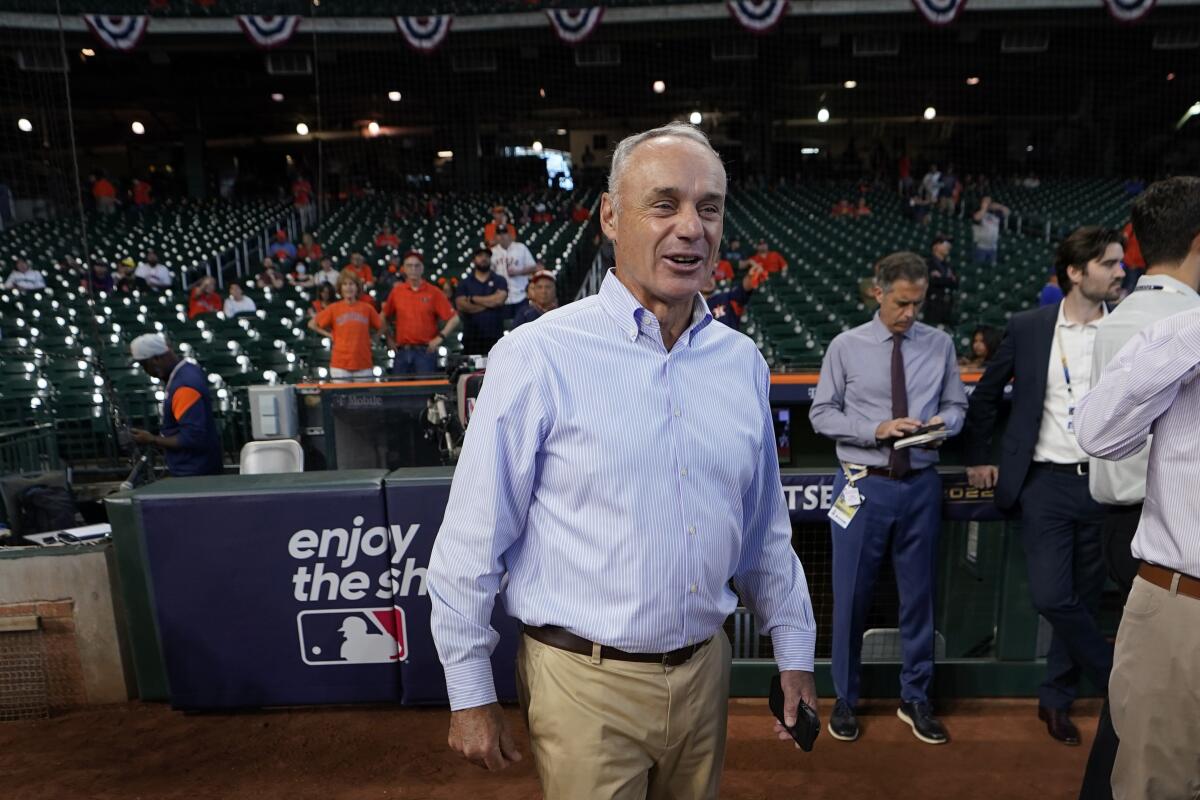
You might say an 87-win team in the World Series devalues the postseason. However, when Manfred and the owners talk of value, they do so in financial terms.
“Early round ratings gains and the crowds in 11 of our ballparks prove that fans embraced the new system,” Manfred wrote. “The drama of this month — including the upsets by teams that had harder paths by design — has undoubtedly created new fans and lured others back to the game.”
And, in case that was too subtle: “The skill of our players and the success of the new playoff format are also good for business. This season we will approach $11 billion in league revenues, surpassing pre-pandemic levels.”
Justin Verlander’s first career World Series win in nine starts Thursday against the Philadelphia Phillies puts the Houston Astros on the cusp of a title.
The question, as always, is how owners choose to invest those revenues. On that score, having the Phillies rather than the Dodgers represent the NL in the World Series could be good for the league.
The Phillies could have said, well, the Braves are defending champions and the Mets are flush with cash from an owner who made mega-billions in hedge funds and, gosh, how can we compete in the NL East? Instead, they signed two sluggers for $179 million in Nick Castellanos and Kyle Schwarber. In the first year each league had six playoff spots, the Phillies took the sixth and final spot, then went on a tear in October.
The San Diego Padres could have muttered something about the Dodgers. Instead, they acquired slugger Juan Soto and closer Josh Hader at the trade deadline. The Padres took the fifth playoff spot in the NL, eliminated the Dodgers, then ran headlong into the Phillies.
If the Phillies’ run inspires owners of other teams to say, “Hey, that could be us,” then the new format could be a success. Owners playing to win is good for business. On the other end of the scale, the owner of the Oakland Athletics is playing for time in a seemingly endless pursuit of a new ballpark, and his team sold fewer than 1 million tickets this season.
Albert Pujols is set to fulfill his personal-services contract with the Angels. What does that mean for the Angels and his association with the Cardinals?
The World Series rainout last week in Philadelphia — and another rainout earlier in the postseason, in New York — triggered a round of pathetic cries for playoff games to be limited to ballparks with retractable roofs or warm-weather cities. The critics ought to have come out and said what they want, flat out: a neutral-site World Series.
That would be good for the television networks, and good for corporate sponsors who could book party tents and hotel rooms years in advance.
That would be bad for fans — and, to their credit, Manfred and the owners have resisted an option that might make them a few more bucks. Baseball is a daily ritual, and the last thing the lords of the sport should do is ask fans to invest their hearts and wallets into their team all summer, then strip their city of the World Series and demand those same fans to take a week off work and fly to Phoenix to watch their team play for a championship.
All the owners should have been in Philadelphia this week, to experience how excited and raucous the city was for its first World Series in 13 years. And then all the owners should do all in their power to get their team there next year.
More to Read
Go beyond the scoreboard
Get the latest on L.A.'s teams in the daily Sports Report newsletter.
You may occasionally receive promotional content from the Los Angeles Times.

